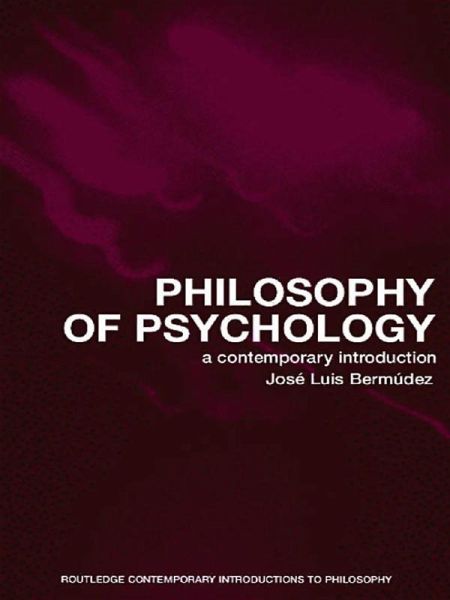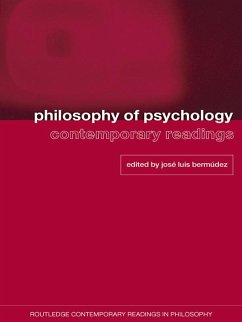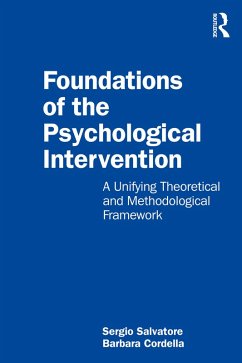
Philosophy of Psychology (eBook, PDF)
A Contemporary Introduction
Versandkostenfrei!
Sofort per Download lieferbar
38,95 €
inkl. MwSt.
Weitere Ausgaben:

PAYBACK Punkte
19 °P sammeln!
José Luis Bermúdez introduces the philosophy of psychology as an interdisciplinary exploration of the nature and mechanisms of cognition. Philosophy of Psychology charts out four influential 'pictures of the mind' and uses them to explore central topics in the philosophical foundations of psychology, including the relation between different levels of studying the mind/brain; the nature and scope of psychological explanation; the architecture of cognition; and the relation between thought and language.Chapters cover all the core concepts, including: models of psychological explanation the nat...
José Luis Bermúdez introduces the philosophy of psychology as an interdisciplinary exploration of the nature and mechanisms of cognition. Philosophy of Psychology charts out four influential 'pictures of the mind' and uses them to explore central topics in the philosophical foundations of psychology, including the relation between different levels of studying the mind/brain; the nature and scope of psychological explanation; the architecture of cognition; and the relation between thought and language.
Chapters cover all the core concepts, including:
Philosophy of Psychology: A Contemporary Introduction is a very clear and well-structured textbook from one of the leaders in the field.
Chapters cover all the core concepts, including:
- models of psychological explanation
- the nature of commonsense psychology
- arguments for the autonomy of psychology
- functionalist approaches to cognition
- computational models of the mind
- neural network modeling
- rationality and mental causation
- perception, action and cognition
- the language of thought and the architecture of cognition.
Philosophy of Psychology: A Contemporary Introduction is a very clear and well-structured textbook from one of the leaders in the field.
Dieser Download kann aus rechtlichen Gründen nur mit Rechnungsadresse in A, B, BG, CY, CZ, D, DK, EW, E, FIN, F, GR, HR, H, IRL, I, LT, L, LR, M, NL, PL, P, R, S, SLO, SK ausgeliefert werden.













